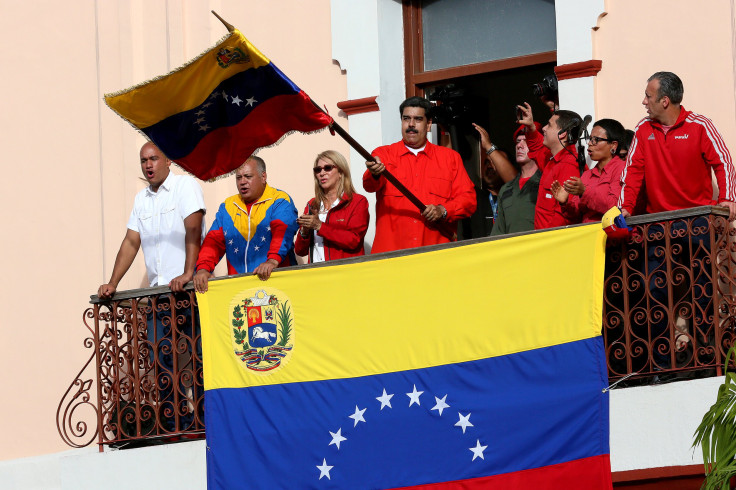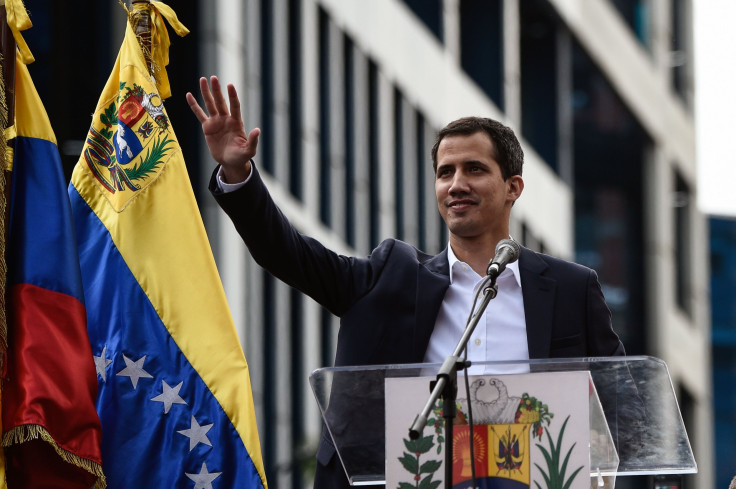Venezuela Update: Russia Criticizes Trump Calling Nicolas Maduro Government ‘Illegitimate’
UPDATE: 3:55 a.m. EST — In an interview Thursday with Russian magazine International Affairs, the country’s Deputy Foreign Minister Sergey Ryabkov warned the United States against military intervention in Venezuela. He was answering a question about the possibility of U.S. military intervention in the South American country, after the Trump administration said the presidency of Nicolas Maduro was illegitimate, and recognized instead of the leadership of Juan Guaido, who declared himself interim president Wednesday of the Latin American nation.
“We caution against this. We believe that this would be a catastrophic scenario that will shake the foundations of the development model we are witnessing in the Latin American region. Where, as you know, one of the slogans, one of the conceptual elements of self-perception, self-identification of these very close fraternal countries in the vast region of Latin America is unity in diversity,” Ryabkov said in the interview.
Original story:
President Donald Trump announced Wednesday the official United States stance of recognizing Juan Guaido as the interim president of Venezuela, and called President Nicolas Maduro’s government “illegitimate.” While U.S. allies in the region and in Europe were quick to echo the decision, some other regional countries and Russia — a major ally of Venezuela — were equally quick to criticize the Trump administration’s move and said the situation in the South American nation amounted to a “coup.”
That the U.S. was on the verge of making such an announcement was clear already, after Vice President Mike Pence wrote a piece Tuesday in the Wall Street Journal, expressing support for the “Venezuelan people as they seek to regain their liberty from dictator Nicolas Maduro.”
.@POTUS & the US stand w/ the Venezuelan people as they seek to regain their liberty from dictator Nicolás Maduro. For the sake of our vital interests & the sake of the Venezuelan people, we will not stand by as Venezuela crumbles. Read my op-ed in @WSJ: https://t.co/CRNMxlNIJM
— Vice President Mike Pence Archived (@VP45) January 23, 2019
Guaido expressed his appreciation for the U.S. decision in a tweet, replying to Trump. Maduro, on the other hand, called on the people of the country to defend the nation’s stability, and to reject interventionism and the coup. Over a dozen countries in Latin America threw their weight behind Guaido, who is the leader of Venezuela’s National Assembly which was elected in 2015. A 2017 election superseded that legislative body with a Constitutional Assembly, but Washington has refused to accept that second election.

Maduro has tried, unsuccessfully, to continue the socialist policies of his predecessor and mentor, the late Hugo Chavez, but under his rule, the Venezuelan economy has collapsed as a result of corruption and mismanagement, even given the country’s massive crude oil reserves — the largest known in the world.
Consequently, there is a large amount of support on the ground for Guaido, and both in the days leading up to Wednesday and in the hours since Trump’s announcement, there has been a large number of violent incidents reported from around the country, including news of several people killed. Guaido offered condolences to the families of those killed. Clashes between supporters of the two leaders, as well as with armed forces, continued around the country. It wasn’t clear yet whose side the military was on.

Responding to the events unfolding in Venezuela, Russian Foreign Ministry spokeswoman Maria Zakharova said on Facebook it was an example that showed “clearly how the progressive Western community actually treats international law, sovereignty and non-interference in internal affairs of states — by handpicking the government there.”
Vladimir Dzhabrailov, member of Russia’s foreign affairs committee of the parliament’s upper house, told Interfax news agency: “I do not think that we can recognize this — it is, in essence, a coup.”
Bolivian President Evo Morales, another socialist leader in the region, also said on Twitter Latin America was a zone of peace and that it needed to defend its sovereignty against “imperialist coups.” Turkey expressed support for Maduro too.
Retaliating to the U.S. announcement, Maduro went through with his earlier threat of revising diplomatic relations between the two countries, and asked all U.S. diplomatic and consular staff to leave the country with 72 hours. However, Secretary of State Mike Pompeo responded by saying no one had to leave Venezuela, since Maduro didn’t “have the legal authority to break diplomatic relations” any more.
U.S. will conduct diplomatic relations with #Venezuela through the government of interim President Guaido. U.S. does not recognize the #Maduro regime. U.S. does not consider former president Maduro to have the legal authority to break diplomatic relations. https://t.co/DBS4GiGEWI pic.twitter.com/gQZJuS1xfn
— Secretary Pompeo (@SecPompeo) January 24, 2019
However, the State Department issued a security advisory for U.S. citizens in Venezuela.
In related news, there were reports that social media platforms Facebook and Instagram had removed the verified status of Maduro’s accounts, and that Guaido’s accounts had been verified instead. However, a spokesperson from Instagram clarified that Maduro’s accounts were never verified on either website, and Guaido’s verification too had happened earlier, and had nothing to do with the current events.
© Copyright IBTimes 2025. All rights reserved.





















